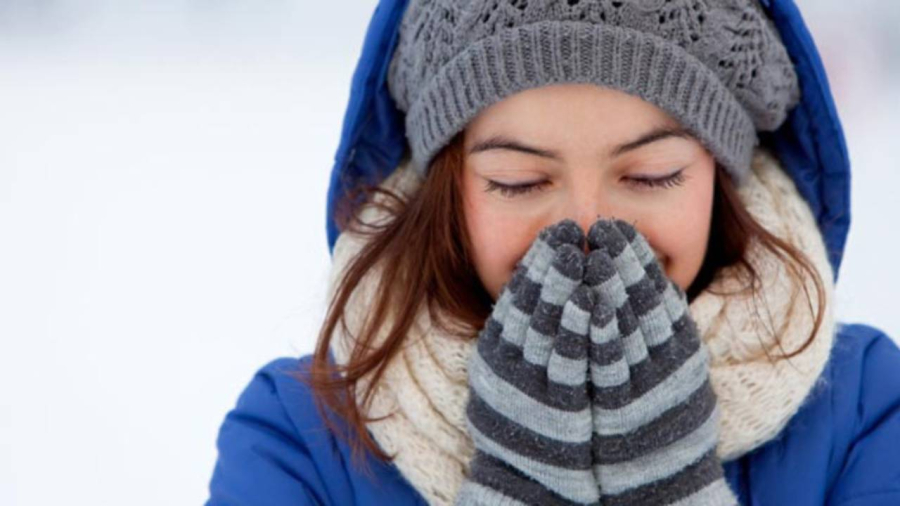Head and Ears
The head is where the blood vessels in the body flow. If the head is cold, it means that the body will also be cold, not to mention the numbness and headaches. Prolonged exposure to cold temperatures can lead to more dangerous chronic headaches.

Ears, on the other hand, are very thin and sensitive. If they are too cold, it can lead to cold or headaches. The best way to keep warm in cold weather is to wear a hat that covers your head and ears or use earmuffs.
Neck
The neck is the area where the nerves are concentrated and is the only pathway for delivering oxygen and nutrients from the heart to the brain. If it is not kept warm during the cold season, it can easily lead to respiratory diseases such as cough, sore throat, hoarseness, etc.
Therefore, during the cold season, you should wear clothes with collars or use scarves to keep warm and minimize the occurrence of various diseases.

Nose
Very few people keep their noses warm during the winter, and that’s why many people often have runny noses, allergic rhinitis, colds, or sinusitis. To avoid these conditions when going out, you should use a mask to cover your nose. Occasionally, you can also warm your palms and place them on both sides of your nose to help keep it warm.
Stomach
The stomach is an important part of the digestive system and is also susceptible to sensitivity when the weather turns cold. If not kept warm, it can lead to diarrhea, and more dangerously, high fever and dehydration. In addition to wearing warm clothes, you should also consume warm or hot food, and avoid cold or cooling foods.
Feet
Our feet usually have a thin layer of fat under the skin, making them less tolerant to cold temperatures. Furthermore, because the feet are farther away from the heart, blood circulation to this area is also poorer. However, the feet are an important part of the body, and if they become cold, they can weaken the body’s immune system. The best way is to wear warm socks everywhere and at all times, even indoors and while sleeping.
Dietary Considerations
In winter, you should eat hot and nutritious food that is suitable for the season, and avoid eating raw or cold foods. Nutritious food can help enhance your immune system.
Pay attention to eating plenty of vegetables and legumes. In the early morning of winter, do not let your stomach go empty; at night, avoid overeating, and consider lying down for a while after a meal to aid digestion.
Exercise in Winter
Although winter can be cold, it is still necessary to exercise and train the body, depending on specific conditions and circumstances. You can exercise indoors or outdoors.
However, if you choose to exercise outdoors, try not to exercise too early. In general, wait for the sun to rise before going outside to exercise. Regular and appropriate exercise helps enhance metabolism, improve health, and reduce the risk of illness.





































